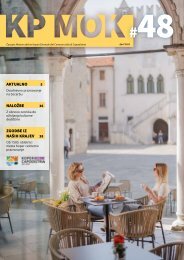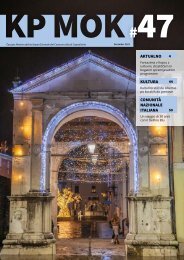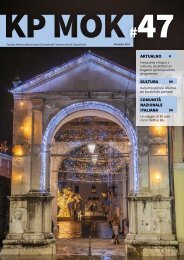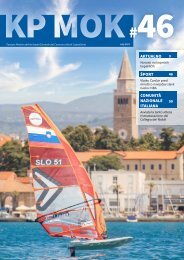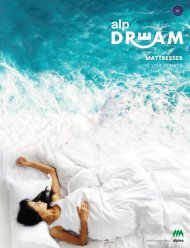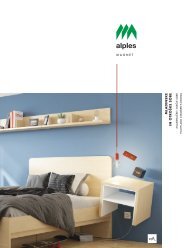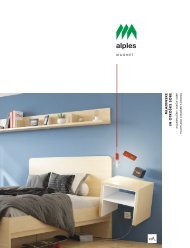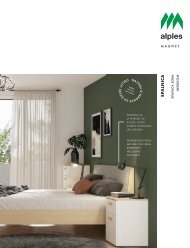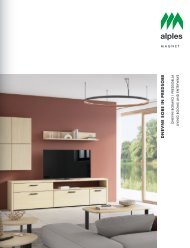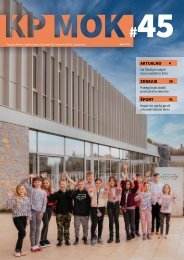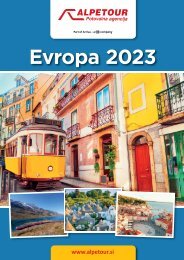EUSAIR - Final Report
Create successful ePaper yourself
Turn your PDF publications into a flip-book with our unique Google optimized e-Paper software.
14.30–15.50<br />
TOWARDS A GREEN<br />
AND CIRCULAR ECONOMY<br />
IN THE ADRIATIC AND<br />
IONIAN REGION<br />
Panel discussion:<br />
• Peter Grk, National Coordinator<br />
for Western Balkans, Ministry of<br />
Foreign Affairs, Slovenia<br />
• Ladeja Godina Košir, Director<br />
of Circular Change & Chair of<br />
the European Circular Economy<br />
Stakeholder Platform, Slovenia<br />
• Aleš Gnamuš, Senior Policy Analyst,<br />
Joint Research Center of the<br />
European Commission<br />
• Tomaž Rodič, Director, Centre of<br />
Excellence for Space Sciences and<br />
Technologies Space-SI, Slovenia<br />
• Denis Jahić, General Manager,<br />
AquafilSlo, Slovenia<br />
• Marija Raspopović, Senior Advisor,<br />
Chamber of Economy of Montenegro,<br />
BlueFasma Interreg<br />
MED Programme<br />
• Roberto Sandrini, Project Manager,<br />
Technology Park Ljubljana,<br />
Circular 4.0 Interreg Alpine Space<br />
CAN RADICAL COLLABORATION ENABLE<br />
SYSTEMS TRANSFORMATION?<br />
Peter Grk: Slovenia is going to take over the Presidency of the EU Council from<br />
the 1 st of July. One of the most important priorities of Slovene Foreign policy is EU<br />
enlargement to the Western Balkans, not becuase we are an altruistic country,<br />
but because this region is vital for our stability and prosperity. One of the symbolic<br />
things that we will do in Slovenia is an EU-Western Balkans summit in October<br />
2021. Why is the Summit important? Because we can somehow streamline<br />
and synchronise all the activities that EU and WB countries are doing together.<br />
One of the things that is going to feature most prominently at the Summit is the<br />
whole agenda of connectivity, and especially the Green Agenda, meaning the<br />
transition from coal to green.<br />
Ladeja Godina Košir: In the circular economy, we are aiming to maintain<br />
value as long as possible. We need to think about design. So as not to produce<br />
things that can’t last. We want to get to the point at which waste is integrated<br />
into the system as a resource. We therefore need creativity, we need innovation,<br />
not only in products but also in services. Radical collaboration is of crucial<br />
importance. Each of us has knowledge, each of us is somehow integrated into a<br />
certain area – but we need a systemic approach. One sector or one country cannot<br />
solve problems alone: our continent is so small that we need to work hand<br />
in hand. Networks are the key. We are used to public governance, but without<br />
network governance, change cannot happen. Only with a combination of the<br />
two can we get tangible results.<br />
58 | <strong>EUSAIR</strong> Slovene Presidency





